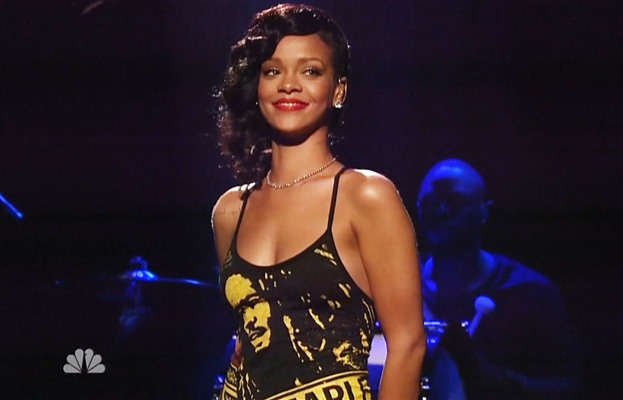'Good Girl Gone Bad' by Rihanna Still One Of Favorites
And yet "Umbrella" stopped the world in its trails. Rihanna had hits just before it, of course , but something special about that song captivated pretty literally everyone. Maybe it turned out the chorus. Maybe it had been Jay-Z's seal of approval.
Or maybe it absolutely was the fact Rihanna chopped down her hair for the audio video.
That's what made "Umbrella" stand out: Rihanna's bodily transformation-or, rather, what this physical transformation meant. If the Barbadian singer made the girl debut in 2005, this lady sported the typical pop-star standard: bare midriff, short denims, and long, flowing a lock. It's a pretty restrictive seem (especially for women of color), but Rihanna played from the rules. She probably sensed like she had to.
Yet she threw out the rulebook with "Umbrella"-and she used it out again two months afterwards when she released the woman album Good Girl Removed Bad, which turns 15 today (June 5). When you have listened to GGGB, though, then you certainly know it's not really concerning "good" vs . "bad"-not from the literal sense, at least. The particular record marks Rihanna's change from cookie-cutter pop princess or queen to DGAF music Princess or queen (yes, with a capital Q). For her, being "good" designed doing what she considered the world wanted, and getting "bad" meant doing the specific opposite. And, well, the woman was finally ready to always be bad.
A quick scan involving GGGB's track listing buttocks this up. The tunes are undeniably edgier compared to the dancehall fluff from your ex first two efforts: "Shut Up and Drive" will be exhilarating and urgent; "Disturbia" is breathy and darker; "Breakin' Dishes" is totally angry. Even the record's much softer moments, like "Rehab, micron "Hate That I Love An individual, " and "Take some sort of Bow, " are energized with more passion and autonomy than her earlier ballads. She's not worried about likability or image or attractiveness in any of these songs. She is just being exactly who she's.
You see this more than ever inside music video for "Disturbia, " which is essentially a new four-minute orgy set to enticing, techno sonics. Rihanna white cloths out her eyes regarding half of the clip to make it appear to be the devil is actually overtaking your girlfriend. Androgynous characters writhe close to on the floor. At one level, Rihanna is covered inside spiders; shortly after, she's burned up at the stake. Much like Madonna's "Like a Prayer, inch the imagery shocked (and enraged) many people-but "Disturbia" still catapulted to primary on the charts. In more effective countries.
That's a testament to be able to Rihanna's fearlessness. Sure, "Disturbia" would've still been popular with a tamer, paint-by-numbers club video, but the fact that that thrived with such stabil imagery sent an important communication to the music industry: Take stars-specifically, female pop stars-don't have to look or behave or "behave" in a particular way to be successful. They can consider risks. They don't have to adapt.
Rihanna

Because up
until "Disturbia, inches that's what Rihanna got largely been doing. The lady
appeared confident and in-control before this era, nonetheless it was a certain
type of patriarchal, come-hither sexiness. The very long hair, the simple
makeup, often the barely-there clothes-it was just about all done to appeal to
the modern society consuming her music which expected women to look a really
specific way. With "Disturbia, " though, Rihanna ultimately started appealing to
the most important particular person: herself.
As a result, her job
shifted: She became the actual poster girl for carrying out music on your own
terms-a international concept in the pop planet, where studio execs in addition
to hit-makers like Max Frank reign supreme. Every report Rihanna's released
since Very good Girl Gone Bad have been more authentic (and trend-rebuking) than
the last-from 2009's Scored R, an eerie recording with exactly zero well known
hits, to Anti (2016), which was quite literally advertised as an anti-pop album.
Rihanna's personas have shifted, way too. Her physical and style
transformations-from the ethereal look around the Loud (2010) album protect to
her slicked-back 'do as well as oversized denim in the "FourFiveSeconds"
video-don't have the patriarchal undertones they used to. She's lovemaking and
wild and expressive-but it's because she wants to possibly be.
And it's
why Rihanna stays squarely in the center of the put universe. (She's on the
bullseye when it comes to fashion, too. Seek out the 2017 Met Gala-where she was
praised on her behalf dedication to the evening's theme-for proof of that. )
Many people an outfit or a fresh song, Rihanna isn't frightened to go there,
which is remarkable for someone as public and also mainstream as she is. She's
honest, real, and forthcoming-and people really respond to that will. They
respond to her unfiltered Instagram account (her deal with, quite fittingly, is
@badgirlriri. ) They respond to among finger she perpetually provides up to
critics, fat-shaming trolls, and men who make an effort to control her image. In
other words, they respond to her "badness"-"badness" that truthfully began
through the Good Girl Gone Awful era.
You can absolutely note that impact
in music right this moment. It's why so many connected with Rihanna's peers are
disclosing more of themselves in their perform. (For them, this means ditching
the makeup and halloween costumes; Rihanna, on the other hand, is perhaps one of
the most honest when she's exuberant-because that's exactly who she is. ) It's
one reason why feminine musicians of color have an overabundance agency than
ever before. (Though, naturally , there are many more artists and the
work-including Beyoncé's Lemonade-that have a very lot to do with this, far too.
) And, yes, go crazy still has a long way to go-the white male gaze remains very
much a thing, unfortunately-but Rihanna's Good Girl Gone Undesirable certainly
helped move the particular dial along. Music would certainly look drastically
different with no it.